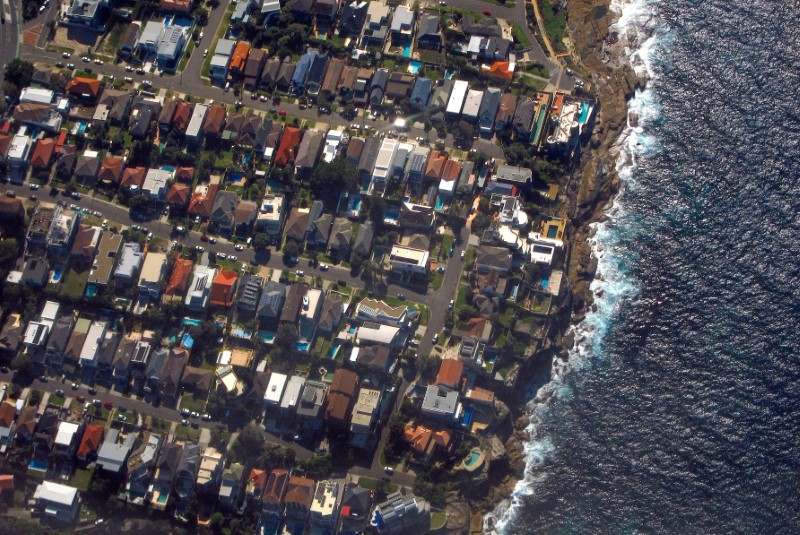By Cecile Lefort and Hideyuki Sano
SYDNEY/TOKYO (Reuters) - Australia has become the world's most active market for securitized home loans, with sales at their highest in a decade as lenders seek to take advantage of surging demand from yield-starved Japanese investors.
Issues of residential mortgage-backed securities (RMBS) total A$67 billion ($50.21 billion), with A$12 billion sold so far this year. Offshore investors have been big buyers, with Japanese to the fore, having previously shown little appetite.
The strong demand has come in the midst of a property boom that has seen Sydney and Melbourne home prices double since 2009, prompting regulators, the central bank and the International Monetary Fund to issue warnings over a potential market bubble.
While a surge in securitized debt and property boom might raise parallels with the U.S. subprime crisis that led to the 2008-2009 global financial meltdown, investors say they are getting far better regulatory protection in Australia than they had in the United States back then.
John Sorrell, head of credit at Nikko Asset Management in Sydney, said there would have to be a catastrophic situation in Australia to see losses on triple A rated RMBS.
"You'd have to have a 30-40 percent house price drop and half of the borrowers in the RMBS pools defaulting. I don't see that happening," he said.
TRACK HISTORY
There has never been an Australian RMBS default, and investors are also encouraged by credit rating agencies' vigilance.
Because of the growing risk of a sharp correction in property prices, Standard & Poor's cut the credit rating on Monday for 23 Australian small lenders, none of which had triple-A status.
Only a fraction of home loans are securitized and around 2 percent of Australian RMBS are in arrears by 30 days, well below Spain's 6 percent and Italy's 5 percent.
"We've done a lot of analysis on the potential downside risk, but we think it is a securitization market with a long history," an investor in Tokyo, who requested anonymity, said of Australia.
"Even if a crisis happened of the magnitude of the Lehman Brothers shock we would not expect a loss there."
A major difference between the United States and Australia is the legal framework. Investors in Australia have full loan recourse, meaning a homeowner defaulting on his debt obligations cannot walk away, and investors have a far better chance of recovering money.
"Australia is a well regulated market" said Tim Ledingham, treasurer at Bank of Queensland (AX:BOQ), which sold A$120 million of RMBS to Japanese accounts earlier this year.
Offshore buying now absorbs as much as half of certain Australian bond offers, according to Will Mortimer, head of securitized products at Citibank Australia, and while demand from Europe, the U.S. and Asia has been growing, Japan is the clear stand out.
"We've seen the biggest increase coming from Japan," said James Austin, chief financial officer of FirstMac. The Brisbane-based non-bank lender sold a large RMBS issue earlier this year.
Around 10 Japanese investors - banks, life insurers and financial service companies - were actively looking at buying into FirstMac's securitization program, Austin said.
Industry players said a Japanese institution recently bought a A$1.5 billion parcel in an Australian RMBS offer.
With near zero or even negative yields paid by Japanese government bonds, it is unsurprising that returns of 2.5 percent to 3 percent paid by triple A Australian RMBS are drawing interest from Japan.
Returns for single A rated parcels can exceed 5 percent.
